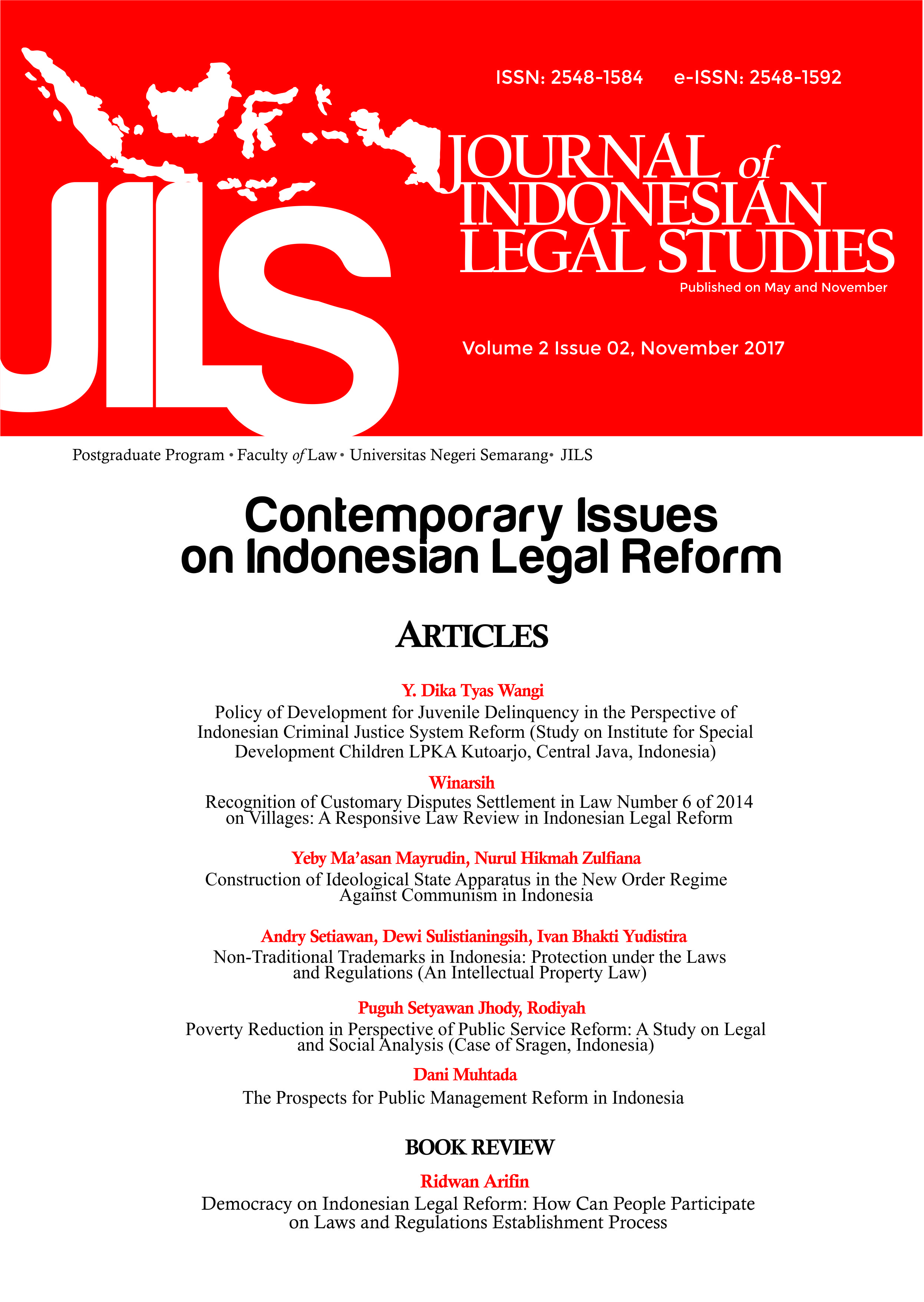Non-Traditional Trademarks in Indonesia: Protection under the Laws and Regulations (An Intellectual Property Law)
Main Article Content
Abstract
Non-traditional Trademarks are also known as non-conventional trademarks develop due to business demands. The development of new trademarks like the sound, scent, three dimensions, and the hologram is defined as non-traditional trademarks and non-conventional trademarks of modern trademarks. The international and national regulations of the trademarks are done through several instruments. In Indonesia, they are governed in Act No 20 of 2016 and the regulations of the Ministry of Law and Human Rights No 67 of 2016. Despite their regulations which are accommodated in Act No 20 of 2016, the implementations of the regulation in Indonesia are as well-developed as that of other countries. The problems in the implementation of the non-traditional trademark protection are the responsibilities of the General Directorate of Intellectual Property especially in preparing the facilities and human resources.
Article Details

This work is licensed under a Creative Commons Attribution-ShareAlike 4.0 International License.
All writings published in this journal are personal views of the authors and do not represent the views of this journal and the author's affiliated institutions. Author(s) retain copyrights under the licence of Creative Commons Attribution-ShareAlike 4.0 International (CC BY-SA 4.0).
References
Azed, Abdul Bari. Kompilasi Konvensi Internasional HKI yang Diratifikasi Indonesia Ditjen HKI-FHUI (The Compilation of International Convention on Intellectual Property Rights Ratified by Indonesia. Directorate General of Intellectual Property Rights of Law Faculty of Universitas Indonesia). Jakarta: Prenadamedia Group, 2006.
Jened, Rahmi. Hukum Merek Trademark Law Dalam Era Global & Integrasi Ekonomi (The Trademark Law in the Global and Integrated Economy Eras). Jakarta: Prenadamedia Group, 2015.
Samsudin, Dadan. Hak Kekayaan Intelektual dan Manfaatnya Bagi Litbang. (Intellectual Property Rights and Their Benefits for Research and Development). Jakarta: Direktorat Jenderal Kekayaan Intelektual Kementerian Hukum dan Hak Asasi Manusia, 2016.
